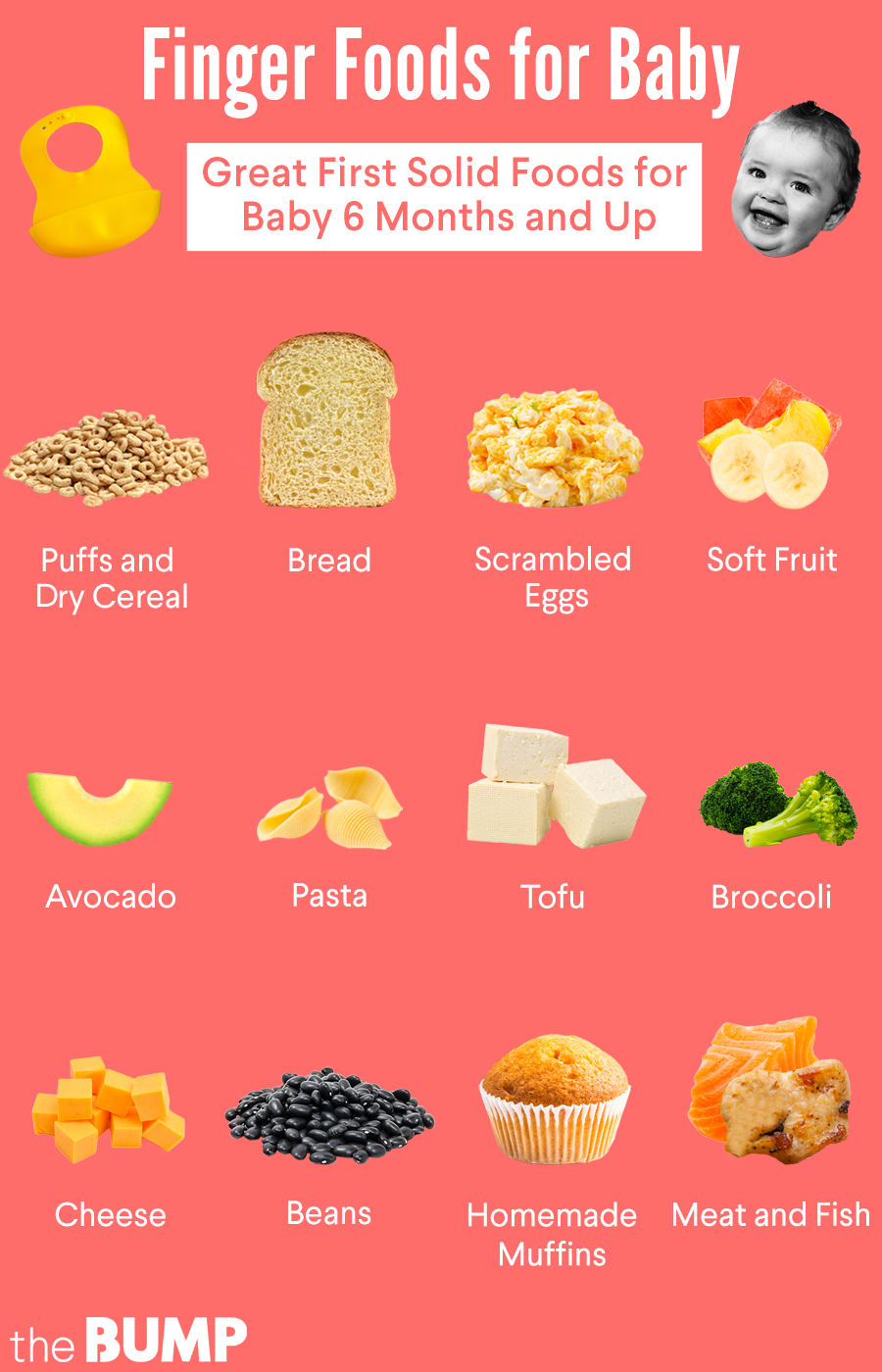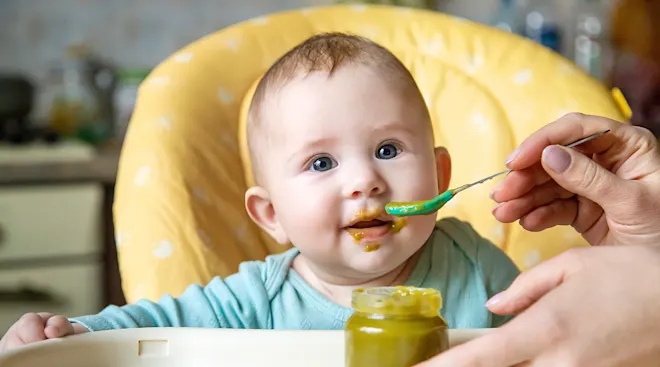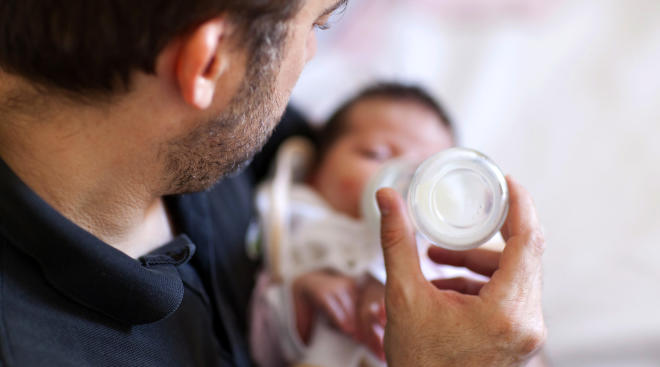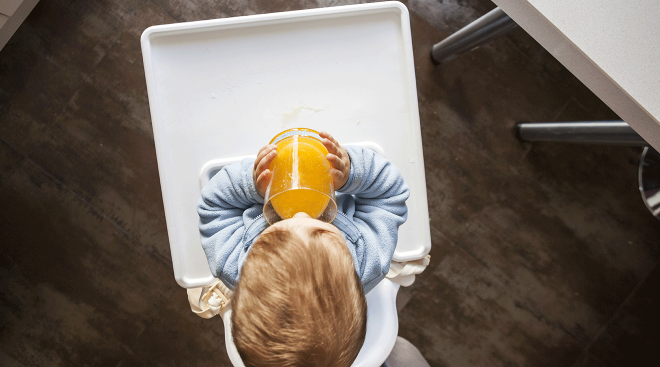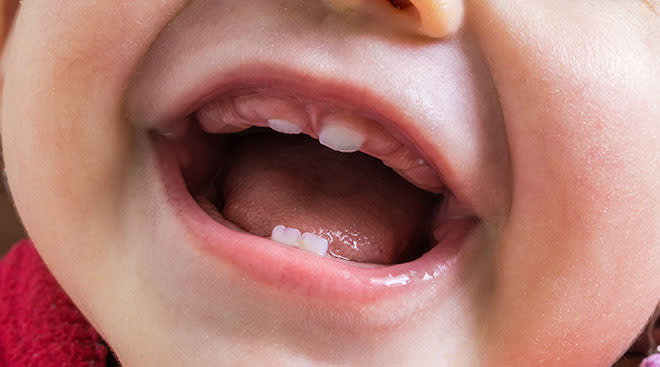Best Foods for Baby (and What to Avoid)
When it comes to feeding baby, there’s no “Top 10” list of superfoods for you to print out, stick on the fridge and follow to a tee. (Sorry!) In fact, experts agree that limiting your little one to only a few “best” foods in their first year (or any year, for that matter) would actually do them a disservice. “The first year of life is when the palate is trained,” says Tina Ruggiero, MS, RD, LD, coauthor of The Best Homemade Baby Food on the Planet. “The three rules I tell my clients to follow are: Go for color, think fresh and introduce new flavors and different textures at age-appropriate stages. Following these guidelines, parents will find more than 10 fruits, more than 10 vegetables and more than 10 proteins to try.” And while you’ll also want to talk with baby’s pediatrician for guidance, adding the following great options to baby’s diet—and avoiding a couple first-year no-no foods—will get your kiddo off to a healthy start.
If you’ve been breastfeeding baby, know that just because your little one is now ready to start solids doesn’t mean you should stop nursing. After all, the American Academy of Pediatrics (AAP) recommends exclusive breastfeeding for about six months, and then continuing to breastfeed along with giving solids until baby is 12 months old—or longer, if it works for both mom and baby. “The very best food for the first year is breast milk,” says Loraine Stern, MD, FAAP, coauthor of the book Nutrition: What Every Parent Needs to Know. If you’re using formula, continue until baby is 12 months old or until your pediatrician gives the okay to stop.
Best age for breast milk: Birth and older
Baby is born with a natural supply of iron, but it’ll be depleted by the time they’re around 6 months old, Stern says, so introducing iron-rich foods is essential. One that fits the bill: Iron-fortified cereal. It doesn’t have to be the traditional first food of rice cereal—oatmeal and barley are good options too—just make sure you start with a single-grain formula.
Best age for iron-fortified cereal: 4 to 6 months and older
Avocados are a great first fruit to offer baby, because they’re loaded with monounsaturated fats (that’s the good kind!) and have a mild taste and smooth consistency. They’re super-easy to prepare too: Simply mash a very ripe avocado with a little breast milk or formula until it reaches a pureed consistency.
Best age for avocados: 6 months and older
Okay, so there’s no baby superfood—but sweet potatoes come pretty close. According to Ruggiero, they’re one of the most nutritious foods for baby. Why? They’re rich in beta-carotene, which the body converts to vitamin A—and that’s important for good vision, healthy skin, normal growth and protection from infections. Plus, many babies like the soft, pudding-like texture of pureed sweet potatoes, says Susan Casey, RD, CD, pediatric clinical dietitian at Seattle Children’s Hospital.
Best age for sweet potatoes: 6 months and older
Meat—like chicken, lamb or beef—is an excellent source of protein, as well as iron, riboflavin, niacin, vitamin B6 and zinc. Just make sure it’s pureed to a smooth texture. (According to Nutrition, for infants, “even finely chopped meat may be hard to handle and cause choking.”) Try mixing the pureed meat with breast milk and a favorite veggie puree if you’re preparing it yourself, or buy plain pureed jarred meats.
Best age for meat: 7 to 10 months and older
“Beets are an extraordinary nutrient source,” says Ruggiero. “They’re a good source of folic acid, high in potassium and beta-carotene, and they’re a sweet veggie—which babies take a liking to quickly.” Roast or steam them until they’re super-soft; then mash them.
Best age for beets: 11 months and older
Plain (not vanilla) whole-milk yogurt is another protein-rich option for baby—plus, it contains calcium and beneficial live active cultures. (Confused as to why yogurt made with cow’s milk is okay for babies, but actual cow’s milk isn’t? “Very simply, lactose is already broken down with the culturing of the yogurt, and milk proteins are either removed or limited, so it’s easy for baby to digest,” says Ruggiero.)
Best age for yogurt: 9 months and older
Believe it or not, many experts love good old-fashioned Cheerios. The little O’s in the yellow box are an excellent finger food and a good source of fiber. “I don’t think childhood would exist without Cheerios,” says Stern.
Best age for cheerios: 9 months and older
Check out The Bump’s Finger Foods chart:
There’s a plethora of healthy options out there to feed baby–but there are some things you do want to avoid. Make sure anything you offer your little one isn’t a choking hazard, and hold off on the following items:
Honey
Tempted to sweeten up baby’s bland pear sauce with a touch of honey? Don’t. According to Nutrition, “Honey is linked to infant botulism, an illness that can be fatal.” The tummies of babies under age one simply can’t deactivate the botulism spores that might be in honey, Stern says. So avoid this food until baby has passed their first birthday.
Cow’s Milk
Babies can’t easily digest cow’s milk, which is one reason why experts recommend waiting until the one-year mark before offering it.
Please note: The Bump and the materials and information it contains are not intended to, and do not constitute, medical or other health advice or diagnosis and should not be used as such. You should always consult with a qualified physician or health professional about your specific circumstances.
Plus, more from The Bump:
Navigate forward to interact with the calendar and select a date. Press the question mark key to get the keyboard shortcuts for changing dates.

































